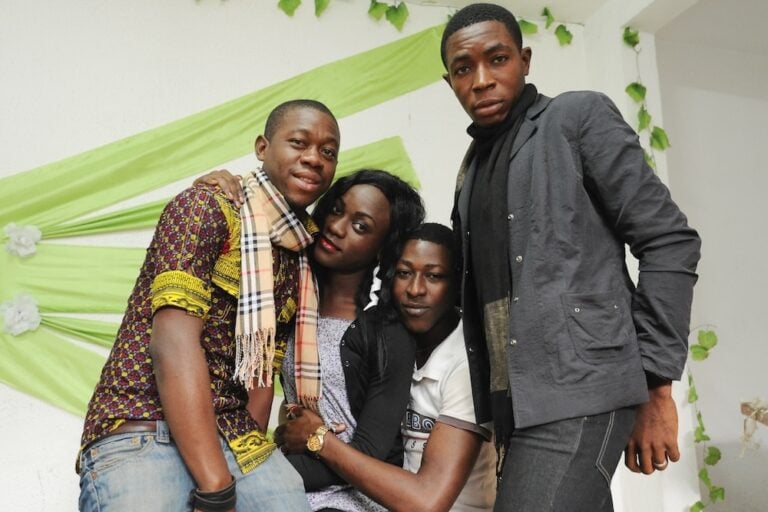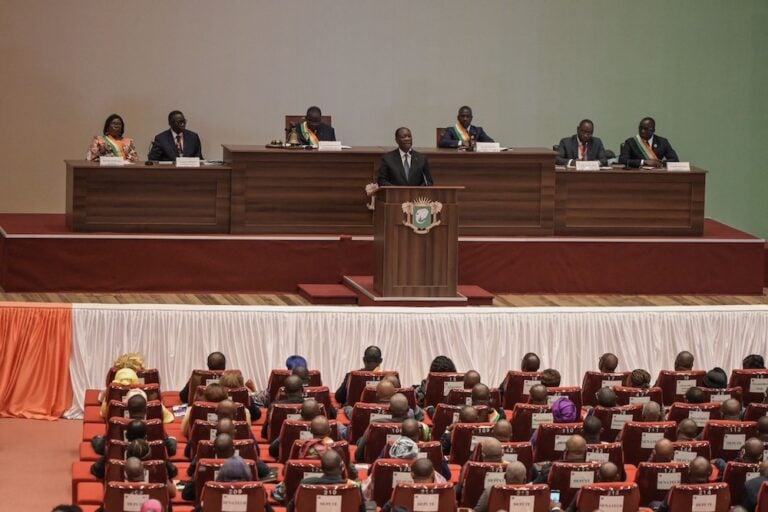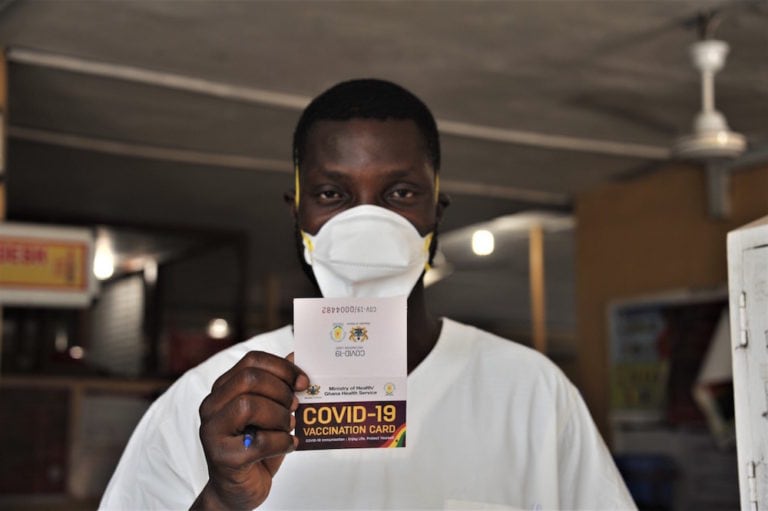Franco-Canadian journalist Guy-André Kieffer was kidnapped from an Abidjan supermarket parking lot on 16 April 2004.
(RSF/IFEX) – News conferences were held simultaneously in Paris and Abidjan on 15 April 2010 to mark the sixth anniversary of Franco-Canadian journalist Guy-André Kieffer’s disappearance in Abidjan.
His brothers, Bernard and Eric Kieffer, and his daughter, Canelle, gave a news conference at Reporters Without Borders headquarters in Paris together with the press freedom organisation’s secretary-general Jean-François Julliard, and French lawyer Alexis Gublin, while the Ivorian Guy-André Kieffer Truth Collective gave a news conference at the Abidjan Press Club.
At the same time, large (4mx3m) posters were put up on billboards in several busy parts of Abidjan. The posters, which will be displayed for two weeks, display the following text: “16 April 2004 – 16 April 2010: six years have passed since our friend and colleague Guy-André Kieffer disappeared in Abidjan.”
The Guy-André Kieffer Truth Collective and Reporters Without Borders have also arranged for the same message, together with the words “Where is he?”, to be published as an announcement in six Ivorian newspapers – “Soir Info”, “L’Inter”, “L’Intelligent d’Abidjan”, “Le Nouveau Réveil”, “L’Expression” and “Le Patriote” – on 15 April.
On 16 April, the anniversary of Kieffer’s abduction, a commemorative event will be held in the Dapper Museum in Paris, with the screening of Guy Deslauriers’ film “Aliker” and a debate on the subject of “Journalism, a dangerous profession.” It will start at 7:00 pm.
Speaking at the 15 April news conference in Paris, Julliard said he was “concerned to see the case bog down” and insisted that “the obstacles could be overcome with more political will on both the Ivorian side and the French side.” Hailing the efforts of the French judge who is investigating the case, Bernard Kieffer said he regretted that the French authorities had not requested anything in exchange for the improvement in relations between the two countries.
“Why did the authorities agree at the end of 2009 to restructure Côte d’Ivoire’s public debt to France and reduce the debt service payments by 90 per cent until 2012 without at the same time negotiating the least legal concession in the Kieffer case?” he asked. “We wrote to President Sarkozy but he did not reply.”
Gublin, who represents the Kieffer brothers, argued that Jean-Tony Oulaï’s provisional release, due to take place on 16 April, was a positive development because “it gives Judge Ramaël more time and should therefore give a new impulse to the French judicial proceedings.”
Canelle Kieffer called on the French and Ivorian presidents to help the family finally find out what happened to her father.
Ivorian First Lady Simone Gbagbo’s lawyer, Rodrigue Dadjé, invited himself to the news conference and made an intervention. He insisted that the Ivorian authorities were not blocking the French investigation and had cooperated fully with all of Judge Ramaël’s requests.
Dadjé also said he did not understand why the French investigation had not explored the so-called “French hypothesis,” by which he meant the possibility that Kieffer’s disappearance was the result of a dispute between French citizens.
“Quite simply because there was never the least evidence to support the French hypothesis,” Bernard Kieffer replied. Julliard added: “Neither Judge Ramaël nor Reporters Without Borders, which is a civil party to this case, had any prior assumption as regards a hypothesis. If the French hypothesis has been ruled out, it is because it did not seem serious and because nothing came to light to support it, unlike the other hypotheses.”
Kieffer was kidnapped from an Abidjan supermarket parking lot on 16 April 2004 after been lured there by Michel Legré, the brother-in-law of President Laurent Gbagbo’s wife, Simone Gbagbo. French investigating judge Patrick Ramaël indicted Legré on 21 October 2004 on a charge of “abducting and holding” Kieffer.
After 18 months in an Abidjan detention centre, Legré was supposedly placed under house arrest in Abidjan but in fact he is moving about the city freely and has even been abroad.
Jean-Tony Oulaï, an Ivorian citizen who claims to have been a captain in the Ivorian army, was placed under investigation while in France on January 2006. Arrested in France in late 2007 on the same charge of “abducting and holding” Kieffer, he is due to be granted a provisional release on 16 April, after two and a half years in detention.
The French investigation has been handicapped by the fraught nature of relations between France and Côte d’Ivoire, the difficulty of conducting enquiries in Abidjan and the code of silence observed by those involved, who are all close to President Gbagbo.


